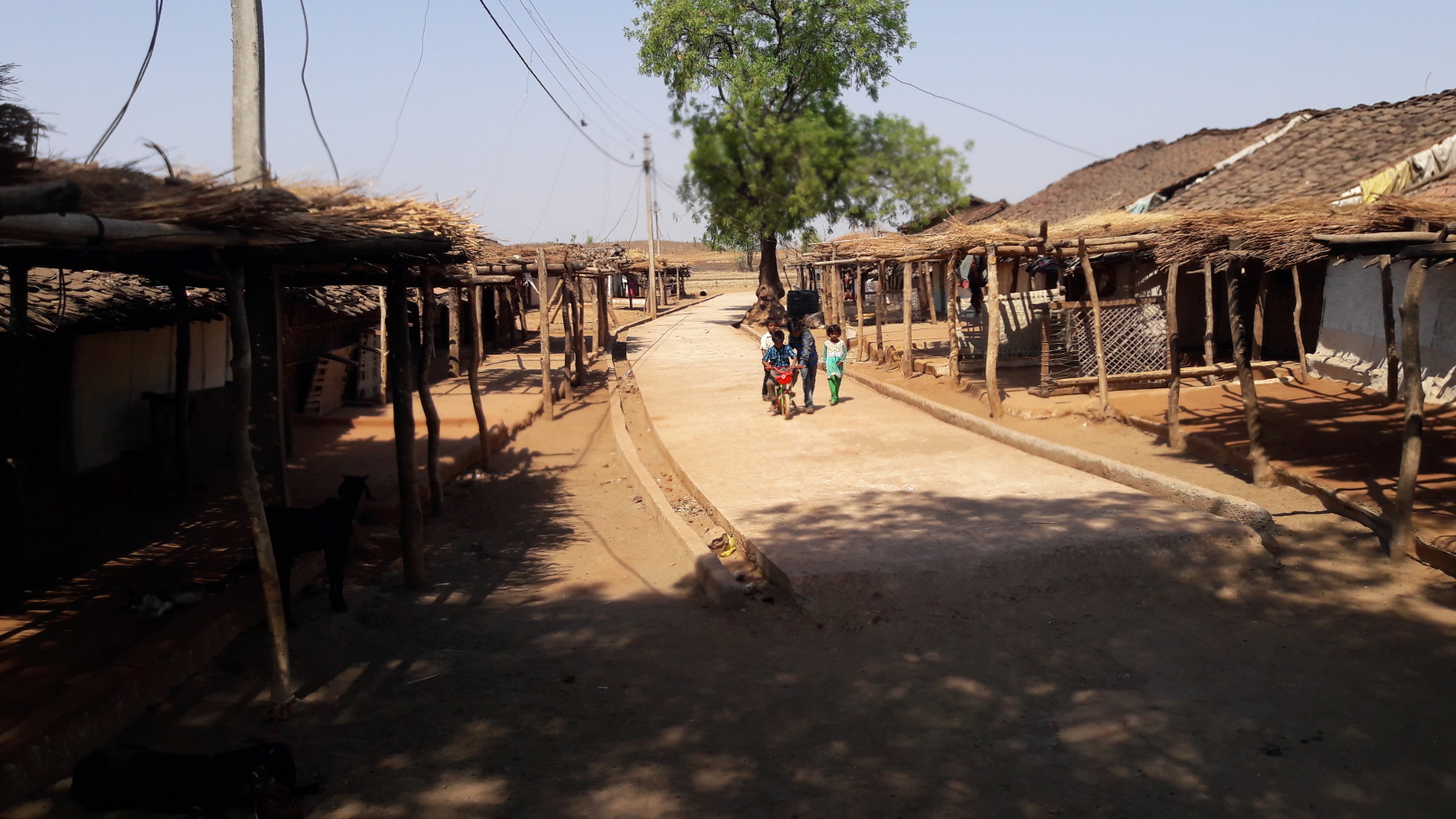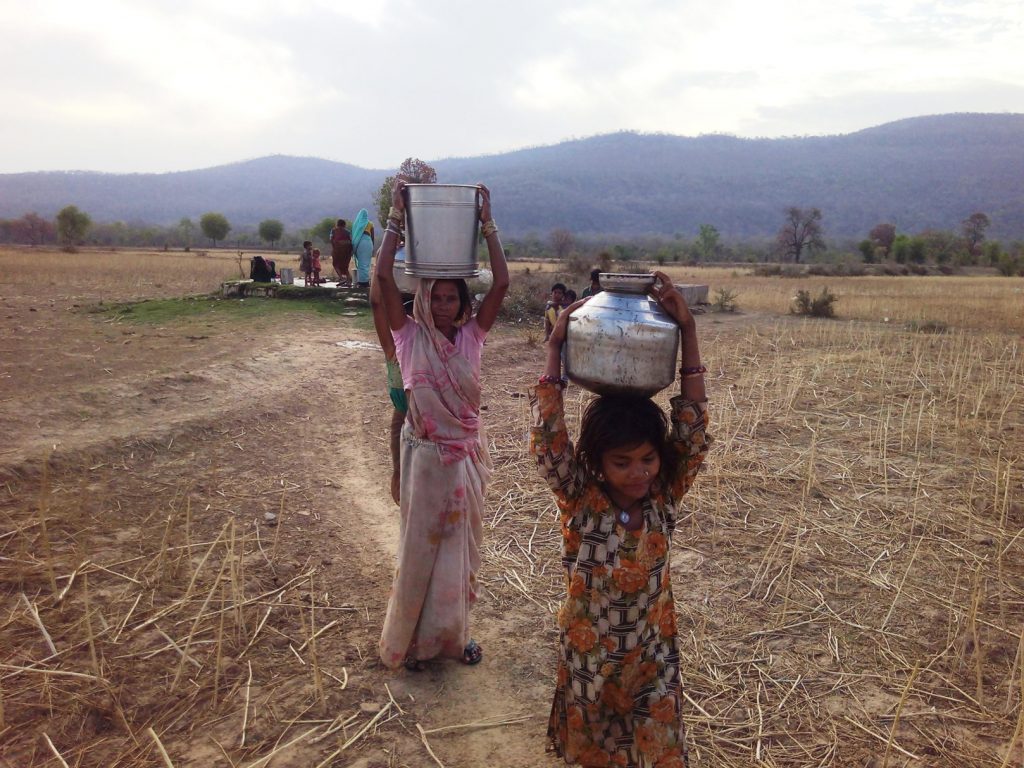In the past two weeks, we have examined two farming methods that could help restore the land. However, the nature is not always men’s ally. When abnormal weather happens, what could impoverished farmers do to help themselves?
Drought is a frequent occurrence in central India where climate changes have caused great damages to the local farmers due to scarcity of rains. Climate change is one of the factors that drives farmers into a corner. In 2015 alone, there were over 12,000 farmer suicide cases due to severe financial difficulties in India [1]. Our partner in India, EFICOR, said countless farmers and their families suffered from hunger, and were forced to sell their livestock, or leave their hometowns in the hope of finding a job in the cities. This showed men had completely lost their hope for the land.

CEDAR started supporting EFICOR two years ago in responding to the drought. Currently in its second phase, the project was different from other emergency relief efforts that, it aimed to minimise the impact of the drought and reduce distress migration through revitalising farming activities and increasing farmers’ resilience against future disasters. EFICOR has been dealing with farmlands that are in poor conditions. In fact, they are working in one of the regions with the lowest crop yield in India. Using the Cash for Work/Food for Work approach, job opportunities were offered to farmers, while it also helped encourage them to stay in the community and participate in improving land condition and constructing water facilities.
Drought causes severe soil erosion which impedes crops growth due to lack of moisture in the soil. This ultimately affects food security of human and livestock. Teaming up with EFICOR, villagers used stones to build gully plugs in drainage lines and waterways where there were soil erosion, preventing further loss of soil and conserving rainwater. Furthermore, they built rainwater harvesting structures that would store water for daily consumption and agricultural use. Our partner also encourages villagers to practise climate adaptive techniques in farming, such as tree planting, making use of natural resources to make mulching and organic fertilisers, and using drought-resistant seeds. The villagers also learned more about livestock management which could serve as an additional income stream.
With great effort in the past two years, food supply of villagers and livestock have improved; the land and water sources have been rehabilitated and became suitable for farming again; farmers who once were forced to migrate to the cities have returned to contribute to the project, showing a rekindled hope in the communities.
And one of the scribes came up and heard them disputing with one another, and seeing that he answered them well, asked him, “Which commandment is the most important of all?” Jesus answered, “The most important is, ‘Hear, O Israel: The Lord our God, the Lord is one. And you shall love the Lord your God with all your heart and with all your soul and with all your mind and with all your strength.’ The second is this: ‘You shall love your neighbour as yourself.’ There is no other commandment greater than these.” And the scribe said to him, “You are right, Teacher. You have truly said that he is one, and there is no other besides him. And to love him with all the heart and with all the understanding and with all the strength, and to love one’s neighbour as oneself, is much more than all whole burnt offerings and sacrifices.” And when Jesus saw that he answered wisely, he said to him, “You are not far from the kingdom of God.” And after that no one dared to ask him any more questions. (Mark 12:28-34, ESV)
We are familiar with this passage where the two most important commandments are recited—to love God and our neighbours as ourselves. Jesus was impressed with the answer of the scribe (vv.34), as he pointed out that besides loving God, we shall love our neighbours too, and that the love for God and our neighbours “is much more than all whole burnt offerings and sacrifices.”
As we practise getting closer to God during Lent, have we thought about to love our neighbours for it is way better than offerings and sacrifices? To love our neighbours entails that we do not harm them. To care for our neighbours threatened by climate change, we should reflect on our habits and prevent actions that are further exacerbating the impact of climate change. Because such behaviours are a form of exploitation to the vulnerable communities enduring the consequences of climate change, including farmers in India. To start, we can be more responsible with the following actions.
Act
Be conscious of our actions and avoid habits that intensify climate change, for example:
- No more plastic utensils, instead, bring your own containers and cups for take outs and beverages.
- Be a conscious consumer. Don’t buy products that are excessively exploiting natural resources, such as electronic devices, fast fashion clothing, etc.
- Shop second-hand, or upcycling products.
- Conserve energy by switching off electronic appliance before you leave the house, or purchasing energy-saving appliances.
Give
We encourage you to take ownership of the problem and donate to CEDAR and its partners in Asia and Africa who faithfully bring about the reconciliation of the land through eco-friendly agricultural projects.
Pray
Dear Heavenly Father, please give us the heart to love our neighbours as ourselves. As we irresponsibly developed and omitted greenhouse gases, our neighbours in developing countries inevitably became the victims of the resulting extreme weather and disasters. Those who survive by farming, raising livestock, and fishing suffer greatly as their livelihoods are at stake. We pray that You would open our eyes to see our sins that tensed up men’s relationship with the Creation, and that every action we take will consequently affect the land and our neighbours. Starting today, we would like to show our love to our neighbors by practising the actions above and reduce our carbon footprints!
We pray especially for the impoverished farmers in India, that they would benefit from the works of our partner and other organisations with Your blessings, and survive the challenges of extreme weather with newly acquired knowledge and techniques. Pray that You would instill hope in them, in addition to fruitful harvests, and sustain them through difficult times. We thank You for bringing employment opportunities to more than 970 families through the project, and we rejoice in knowing that the community even agreed to contribute one day worth of their wages from each working week for the project! Please continue to bless our partner and the community. Amen.
Reference (in Chinese only):
[1] http://www.hk01.com/%E5%9C%8B%E9%9A%9B/87379/-01%E5%B0%88%E8%A8%AA-20%E5%B9%B4%E8%A7%A3%E4%B8%8D%E9%96%8B%E7%9A%84%E8%87%AA%E6%AE%BA%E9%AD%94%E5%92%92-%E6%98%AF%E8%AA%B0%E6%AE%BA%E6%AD%BB%E4%BA%86%E5%8D%B0%E5%BA%A6%E8%BE%B2%E6%B0%91-
